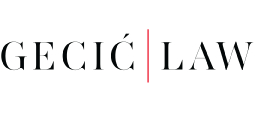Business activity generates thousands of documents, contracts, letters, invoices, and the like. This constitutes documentary material. This means that every entrepreneur and company in the Republic of Serbia, in one way or another, is either a creators or possessor of documentary material.
Through their activities, they either create or appear as owners, contractual parties in obligational relationships, or simply holders (holders). Only a portion of this material holds permanent significance for society and forms what a body of archival material.
The Act on Archival Material and Archival Activity (“Act”) uniformly regulates all of the above. The Act came into force in February 2021. One fundamental principle highlighted at that time is that material should be preserved in the form in which it originated. The implementation of specific bylaws, such as the one regulating e-archiving – the Regulation on Unified Technical and Technological Requirements and Procedures for Preserving and Protecting Archival Material and Documentary Material in Electronic Form (“Regulation”), was postponed for a transitional period for the state administration and businesses to prepare. Specifically, the Regulation begins to apply on January 1, 2024.
What do you need to know?
The Regulation details the obligations of the Act for creators and holders of documentary and archival material in electronic form. This pertains to materials and documents in electronic form. The Regulation does not apply to documents created in a state other than electronic (paper or printed form). It does not impose the obligation to scan and further electronically store, keep, and archive such documents.
The Regulation governs the unique technical and technological requirements and procedures that creators and holders must fulfill regarding the reliable storage, protection, and archiving of electronic documentary material. It specifies the method of supervision by the relevant archive and the procedure for separating and destroying e-material or separating and handing off the permanently kept material to the library 30 years after its creation.
Before submitting archival material to the competent archive, creators and holders of e-material are required to carry out e-archiving by the Regulation on the Conditions for Preparing Documents for Reliable Electronic Storage and Document Formats Suitable for Long-Term Storage. Creators and holders conduct e-archiving using a software solution – an information system for reliable e-storage. Such a solution must ensure high protection against data loss, data integrity compromise, and unauthorized access to such data. Public sector entities (government bodies and organizations, territorial autonomy bodies, local self-government units, institutions, and holders of public authority) carry out electronic archiving using a specific software solution called Archiv. Currently, no detailed information is available about this portal, its commencement of operation, and its characteristics. Private sector entities can choose a software solution for reliable electronic archiving. This does not necessarily imply additional economic costs, as the legislator has allowed private sector entities to securely store (electronically archive) documents using existing software solutions. On the other hand, for those who choose to do so, there is the option of engaging subcontractors – providers of qualified electronic document storage services.
Before submitting to the archive, creators and possessors have the following obligations: (i) establishing internal rules for preparing documents for reliable e-storage, (ii) implementing safeguards to protect the software solution, (iii) preparing documentary material for e-archiving, (iv) classifying documentary material by the list of categories of archival material and documentary material and determining the retention period, (v) recording data on the creator in the software solution and determining metadata about the documentary material, (vi) confirming the fidelity of the original material and the accuracy of the metadata by a qualified e- signature/seal, and their periodic upgrade, (vii) keeping a record of actions taken in the process of preparing for e-storage and e-archiving, (viii) storing documentary material in formats suitable for long-term storage, (ix) maintaining an archival e-book.
The next step is the approval procedure for the list of categories. The adopted list of types of archival material and documentary material with retention periods is submitted electronically by the holder or creator to the relevant public archive in eArhiv via the portal eUprava. The appropriate public archive in eArhiv checks the list of categories and approves. Suppose the competent public library identifies any irregularity in the list. In that case, it may order a corrective measure, based on which the creator and holder promptly correct and submit the corrected list to eArhiv.
E-archiving starts from January 1, 2024, and applies to documentary material generated in electronic form after this date.
By Nemanja Sladakovic, Senior Associate, and Zarko Popovic, Associate, Gecic Law


